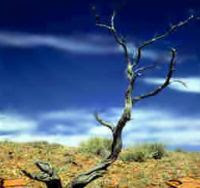When thinking about the worst possible climate change scenario extreme weather events are really the first thing that comes to my mind. There are many scientists across the globe who would agree that if we fail to significantly decrease global level of carbon emissions this scenario will become our everyday's reality.
The latest UN Intergovernmental Panel on Climate Change (IPCC) report on climatic extreme events also shares this opinion. According to UN heatwaves will become significantly longer, hotter and increase in frequency, and rainfall will be heavier during the 21st century, all because of the increased climate change impact.
It was also concluded that there is an increased risk from hurricanes and cyclones as wind speeds in hurricanes and tropical cyclones were likely to increase though there is still not enough evidence to draw firm conclusions for each region.
There is also a chance of an increase in danger in high mountains from landslides and the bursts of glacial lakes. All these phenomena will account for not only major environmental but also major economic damage measured in billions of dollars.
There's a very little chance that this newest report will have any effect at international climate talks that will soon begin in Durban, South Africa. World leaders apparently still believe we have all the time in the world to tackle climate change issue.
And the carbon emissions continue to grow, increasing global temperatures and bringing us very close to a global temperature increase of two degrees Celsius which is seen by many scientists as the point of no return in our fight against climate change





